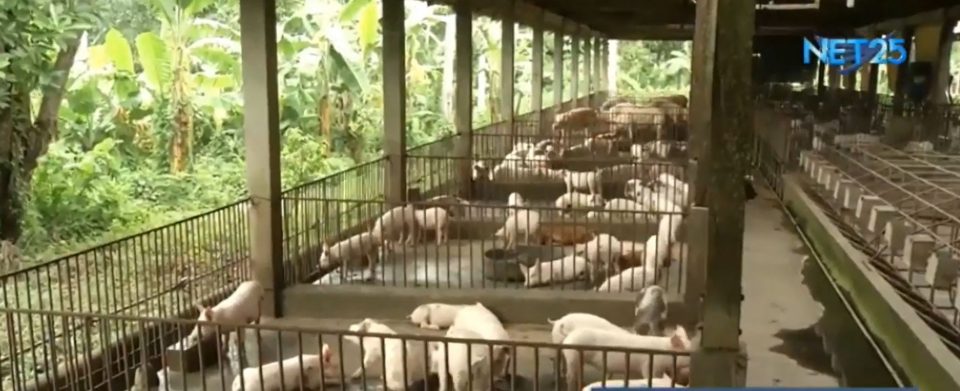
(Eagle News) – The Department of Agriculture (DA) will still know in two weeks to three months the cause of increased swine deaths in backyard farms in some areas, as the department continues to not disclose these places with unexplained swine deaths.
At the same time, the DA assured the public that the pork being sold in the markets and grocery stores are safe as areas within the one kilometer radius of those with swine deaths were placed under quarantine.
The DA has already sent to a foreign laboratory in Europe blood samples from the affected pigs for testing.
It has already ordered the “investigation of affected farms and collection of blood samples” from the pigs in these backyard farms which had “abnormal swine deaths.”
“Affected backyard swine farmers said their pigs showed loss of appetite, recumbency, vomiting, skin hemorrhages, dark discoloration in the extremities, and sudden death,” a statement from the Department of Agriculture said.
It said that experts from the Bureau of Animal Industry (BAI) have noted that “several diseases can be associated with the said clinical signs.
“Thus, further confirmation is needed from a recognized foreign reference laboratory in Europe. We expect to receive the results at the earliest, in two weeks, or at the latest, three months,” it said.
The unexplained swine fever deaths discovered recently had caused alarm as more countries in Asia, including China, Cambodia, Laos, Vietnam and Thailand were reported to have had incidents of African Swine Fever in their pig products.
But the DA said it could not yet determine the exact cause of swine deaths until they receive the results of the lab tests from Europe.
For now, it said that within the one kilometer radius of infected farms, the Bureau of Animal Industry (BAI) and the concerned regional field offices have set up “quarantine checkpoints at strategic locations to prevent the movement of all live pigs, pork, and pork-related products.”
“All pigs tested positive within the area are culled,” the DA said.
-Surveillance within 7-km radius of swine deaths —
For swine farms within the seven kilometer radius from the affected areas, it said that surveillance procedures are being done to test animals “to determine the extent of infection, and limit animal movement.”
“Finally, in farms within 10-km radius, we require mandatory disease reporting,” the DA said.
It did not confirm nor deny reports of unexplained swine deaths in three barangays in Rodriguez, Rizal.
The DA, including the Bureau of Animal Industry (BAI), in the meantime, is “urging swine raisers to improve their biosecurity measures and prohibit swill feeding.”
Swill feeding refers to the usual procedure of backyard hog raisers of feeding pigs “kaning-baboy” or collected left-over food.
As a precautionary measure, the DA is also strongly requiring “that movement and trade of live animals, meat and processed products be accompanied with appropriate veterinary health certificate, shipping permit, and meat inspection certificate.”
-Vigilance in buying meat products urged-
“We also urge consumers to remain vigilant when buying meat and meat by-products, which should be duly inspected by the DA-National Meat Inspection Service (NMIS),” it said in a statement.
“Given the situation, we assure the public that there is enough supply of meat in the market,” the DA said.
“Let us all help the swine industry by reporting any unusual swine mortalities in your area to the nearest government veterinary offices so that immediate action can be undertaken,” it added.
The DA gave these numbers 0995-1329339 or 0920-8543119 which people can use to send their text messages for reports and inquiries on animal disease incidence.
It said that it has partnered with local government units, the private sector and the Philippine National Police (PNP) in vigorously conducting “joint monitoring of the movement of live pigs, pork and pork-related products in suspected infected swine farms.”







